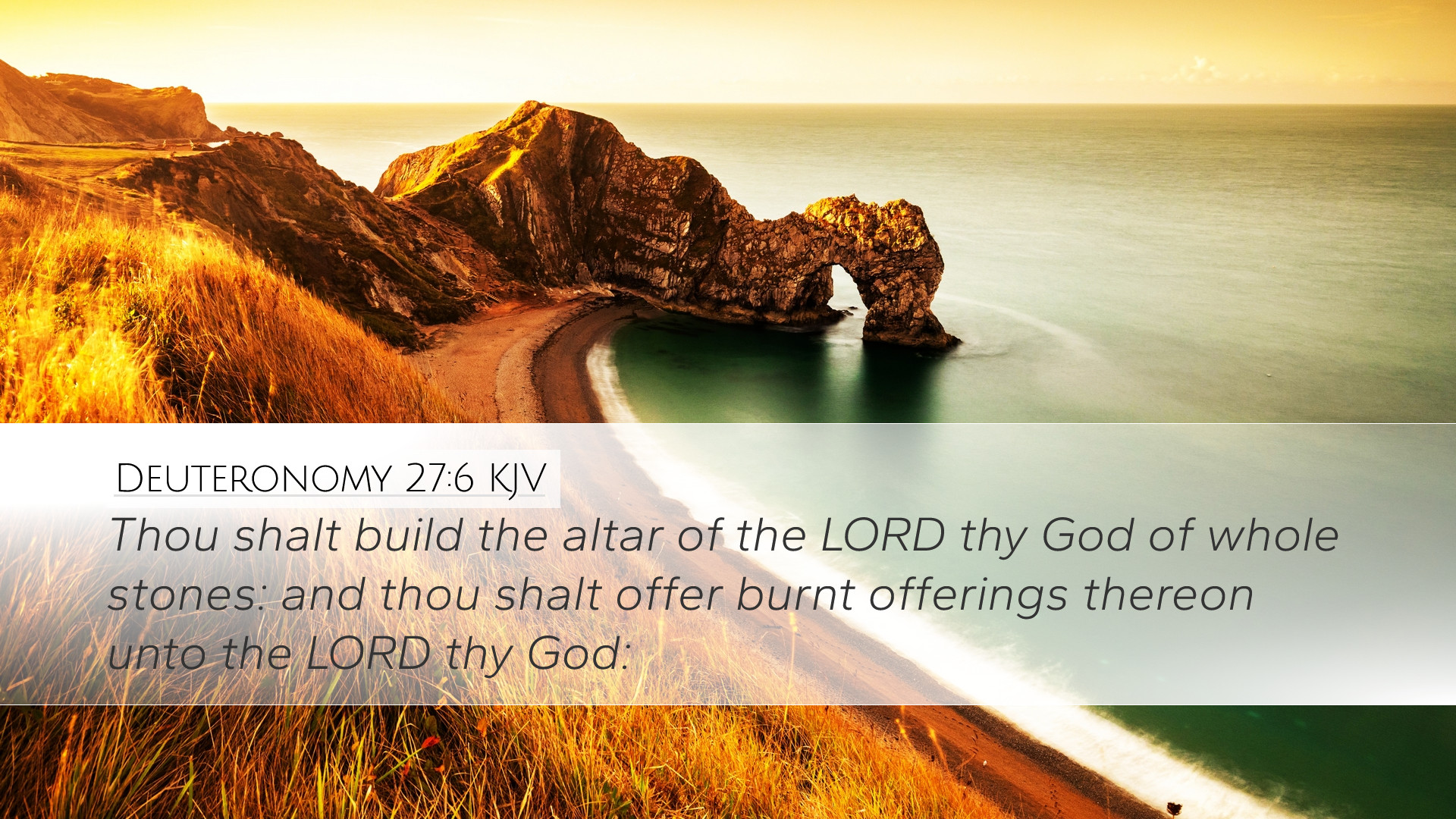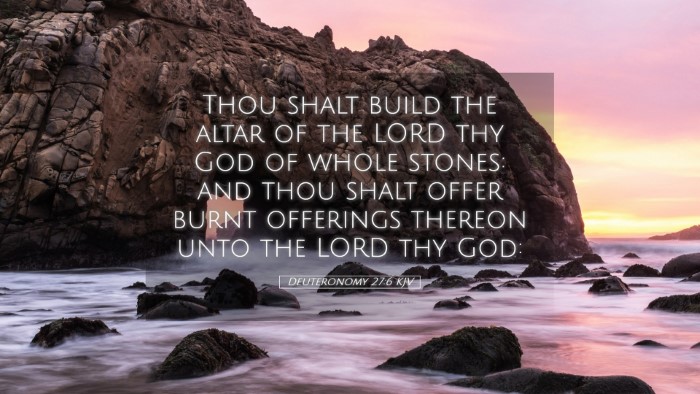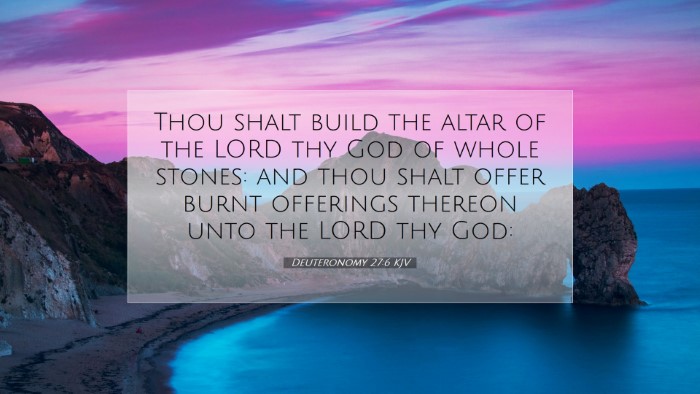Commentary on Deuteronomy 27:6
Bible Verse: "Thou shalt build the altar of the Lord thy God of whole stones: and thou shalt offer burnt offerings thereon unto the Lord thy God." (Deuteronomy 27:6)
Introduction
The verse from Deuteronomy 27:6 is situated within a significant context where Moses is giving instructions to the Israelites concerning the covenant renewal at Mount Ebal. This verse outlines the directive for building an altar, emphasizing the nature of the stones used and the offerings to be made. This commentary seeks to synthesize insights from several public domain sources to provide a deeper understanding of the theological and practical implications of this verse.
Historical Context
The Israelites were about to enter the Promised Land after years of wandering in the desert. This passage comes as part of the renewal of their covenant with God. The reference to building an altar implies the centrality of worship and sacrifice in their relationship with God, highlighting the importance of their fidelity to the covenant.
Exegesis of the Text
The phrase "whole stones" is significant as it underscores the idea of purity and authenticity in the worship of God. These stones were not to be hewn or altered by human hands, which symbolizes the unadulterated worship that God desires from His people.
Matthew Henry points out that the altar made of whole stones indicates an offering that is acceptable and pleasing to God. Thus, it becomes a symbol of the covenant relationship between God and Israel. The nature of the altar serves as a reminder that their relationship must be grounded in the sincerity of worship and obedience.
Theological Significance
According to Albert Barnes, this commandment emphasizes God's insistence on proper worship practices. The altar represents a place of atonement and devotion, a necessary aspect of the Israelites' covenant obligations. The choice of whole stones signifies a worship untainted by human effort, which can reflect our own worship practices today—offering to God what He demands without human innovation or interference.
Practical Implications for Worship
The directive to build an altar from whole stones serves as a practical teaching for contemporary believers. Adam Clarke notes that the act of building such an altar can be paralleled in the Christian life as a call to live wholly before God. Just as an altar made from uncut stones teaches purity, believers are called to present themselves wholly to God in their worship and lives.
Implications for Pastoral Leadership
- Authenticity in Worship: Pastors and church leaders must encourage worship that is genuine and reflective of biblical mandates.
- Teaching about Sacrifice: The burnt offerings signify the need for sacrifice in worship, reminding congregants of Christ's ultimate sacrifice.
- Restoration of Proper Practices: The call for whole stones suggests a return to a biblical foundation in church practices.
Insights for Students and Scholars
- Covenantal Theology: Examining the relationship dynamics between God and His people through covenantal frameworks.
- Symbolic Interpretation: Engaging with the text through the lens of symbolism that speaks to purity in worship.
- Historical Contextualization: Seeking to understand the cultural and historical backdrop to better appreciate the significance of altars in ancient Israel.
Conclusion
In summary, Deuteronomy 27:6 is not merely a historical directive but serves as a timeless reminder of the nature of worship that God desires from His people. The command to use whole stones for the altar encapsulates essential truths about purity, authenticity, and the core of a covenant relationship with God. By reflecting on the insights gathered from Matthew Henry, Albert Barnes, and Adam Clarke, pastors, students, and scholars are encouraged to revisit the foundations of their worship and ensure that it aligns with God's expectations as set forth in Scripture.


